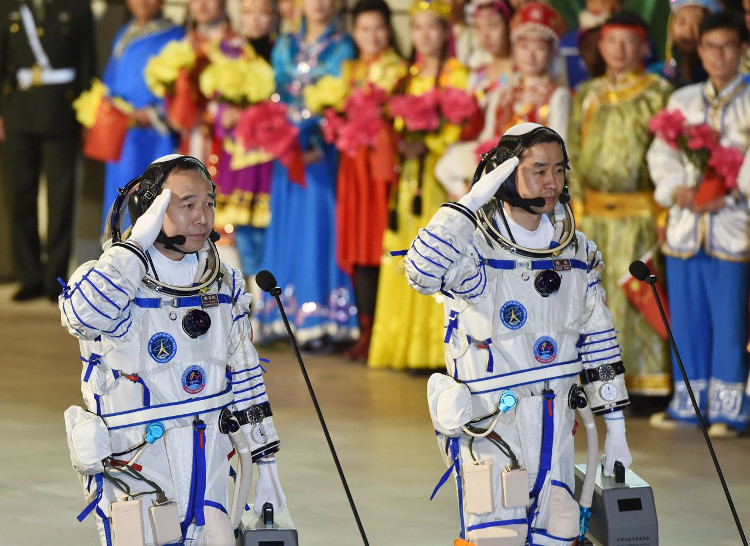China speeds up space
A proposal is being considered to raise the space for science space in China to at least 15.6 billion yuan in the period 2026-2030.
The successful launch of the manned space ship Than Chau 11 in October 2016 marked a significant step forward for China's space program, threatening the US Air and Space Administration's dominance ( NASA).
Promote creative inventions
According to Bloomberg on November 28, China is now America's biggest rival in space exploration with plans to bring people to the moon in 2036 and then Mars. Not only that, President Xi Jinping also hopes that space missions will promote the wave of innovation in the areas of robotics, aviation and artificial intelligence - the leading technologies of the 21st century as well as bringing Great benefits for the country's economy.
"The development of space science plays an important role for China. The space is not only for the government and the fans but has been integrated into the economy" - Jean-Jacques Dordain, former General Director of the European Space Agency, reviews.
The Chinese space program has so far been covered in secret classes. In a rare revelation, Wu Yifei, general manager of China's National Space Science Center, said the government is considering a proposal to increase investment in space science in the hope of scientific advances. , the technology gained will help revitalize state-owned companies and promote entrepreneurship in the private sector.
"China has long relied on knowledge discovered by others. If it wants to bring new vitality to the economy, it needs to devote more resources to efforts to develop breakthrough technologies" - Mr. Ngo explain. The character is confident that even though they are just getting started, nothing will stop China from becoming a powerhouse in the space industry.

Two Chinese astronauts first boarded the Shenzhou 11 ship in the October launch. (Photo: Reuters).
NASA "brakes"
In order to conquer this goal, the proposal is being considered to raise the budget for space science from 4.7 billion yuan (695 million USD) in the period of 2011-2015 to at least 15.6 billion. Yuan period 2026-2030. This figure is still far below the current $ 5.6 billion for NASA's space science, but is a significant increase if it was known 10 years ago, it was just a plump figure.
At that time, according to Ngo, Beijing only focused on important political projects or immediate applications, such as rockets, military satellites, and space ships serving manned missions. . Now, the country is spending heavily on scientific efforts, shown by launching the world's first quantum satellite space and a telescope used to search for dark matter recently.
It is unclear how much China spends but some analysts in the US are worried that Beijing will quickly close the gap with Washington in the space race. According to them, while China "accelerates" the NASA "brakes" when stopping the shuttle program, abandoning the plan to return to the moon and extend the operation of the International Space Station until 2024.
Seeing Beijing openly aim to build its own space station, bring spacecraft to the dark areas of the moon and self-propelled robots to Mars before 2024, many US MPs even wonder. The country lost to China in the space race."China uses space to gain political advantage. While some activities (in space) are related to science and research, China's main purpose is to show off its strength" - he James Lewis, senior vice president of the Center for Strategic and International Studies (USA), said.
- By 2022, China will have the first international space station
- China launches new super speed boat
- China will conduct a space walk in 2007
- China: Spammers sent a fine of 600 USD
- Europe wants China to bring people to space
- China is about to build a space station
- China: In 2008, walk into space
- Cosmic garbage alarm from space exploration projects
- China exposes its ambition of US $ 10,000 billion in space
- Overview of China's Thien Cung 1 Space Station
- Bolivian space scientists are trained in China
- China developed a project of a space station with people
 The world's first sexless AI voice
The world's first sexless AI voice This cool t-shirt will make you invisible to AI
This cool t-shirt will make you invisible to AI AI can predict personality only through selfie photos
AI can predict personality only through selfie photos The world-famous chess player lost to Golaxy before, artificial intelligence 'made in China'
The world-famous chess player lost to Golaxy before, artificial intelligence 'made in China'